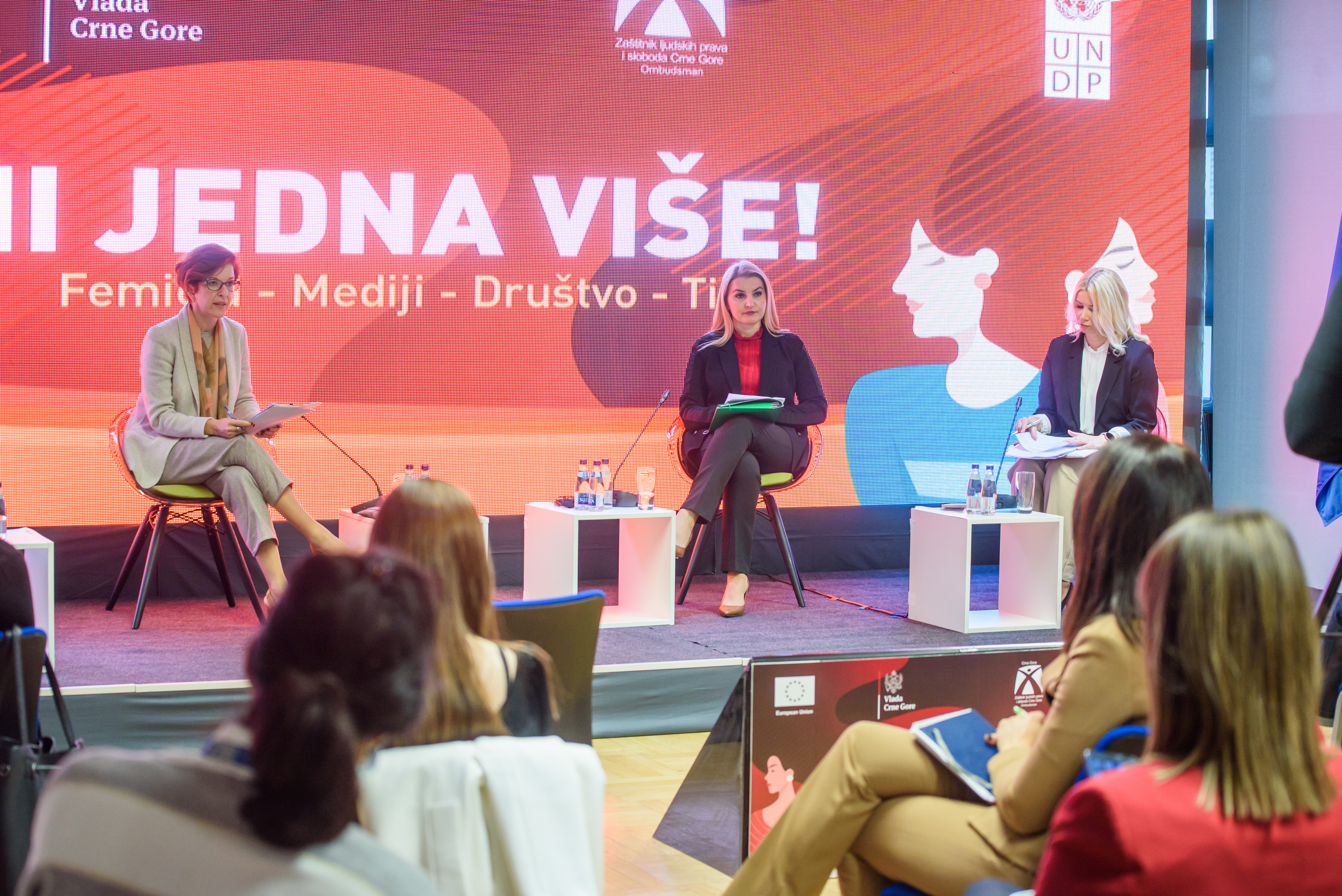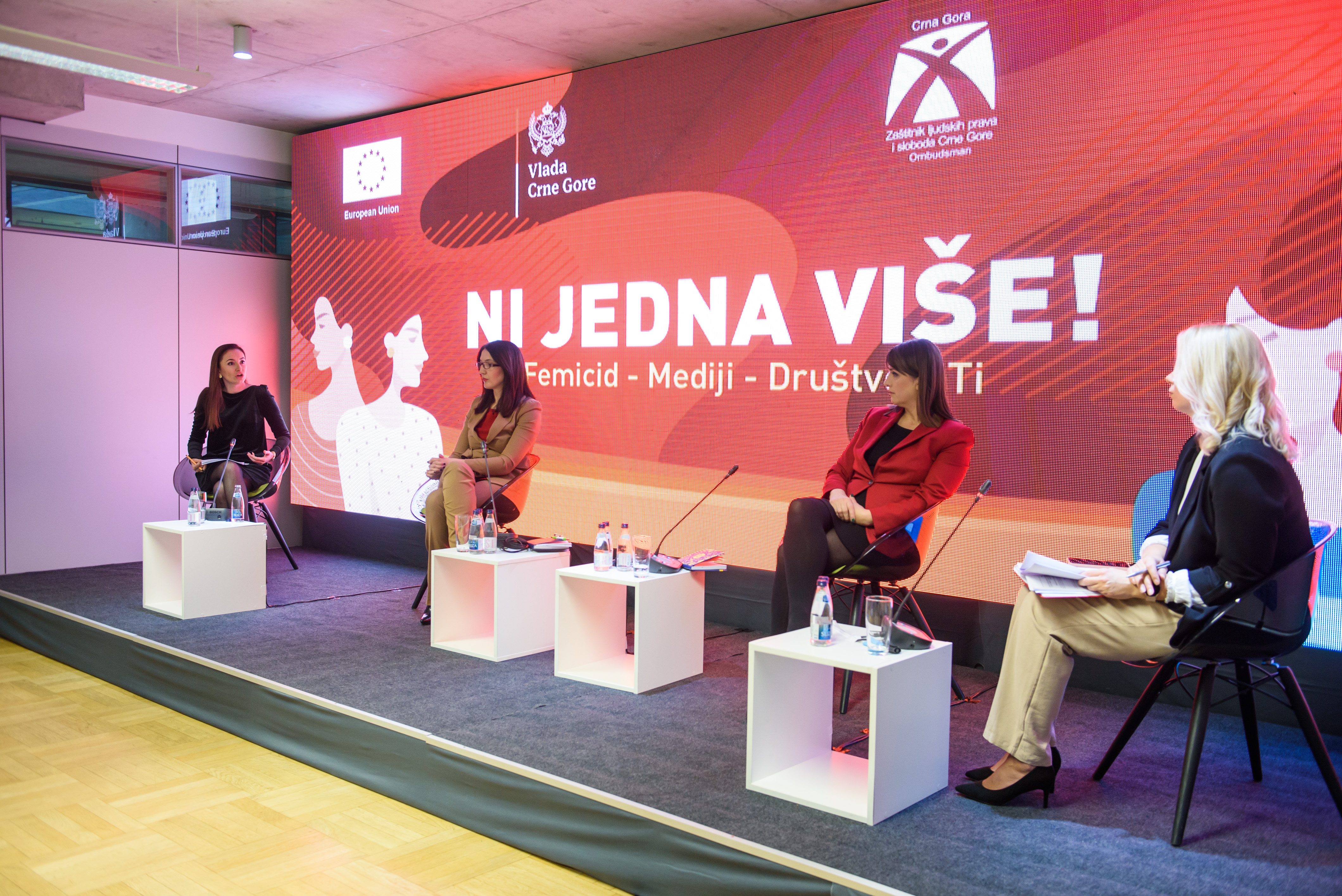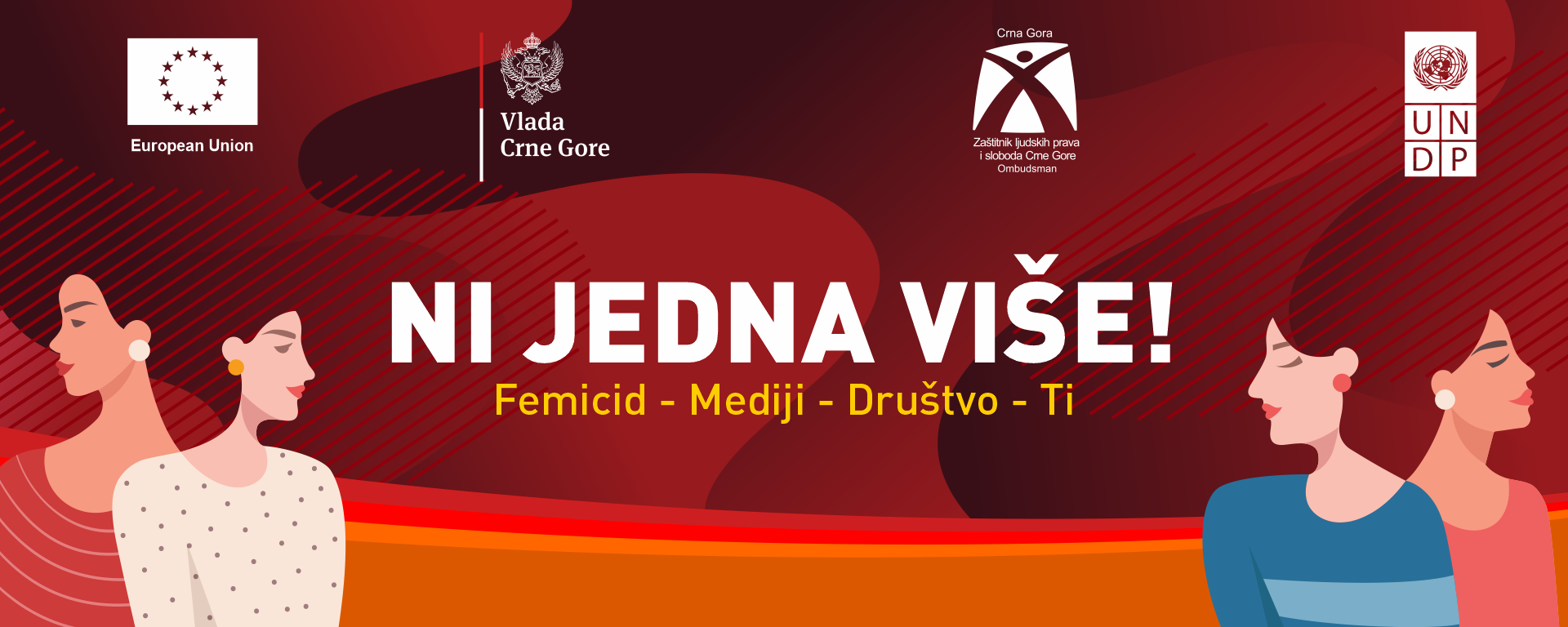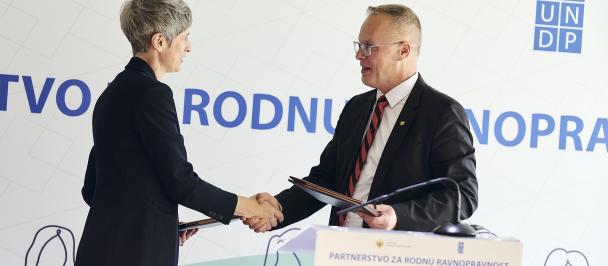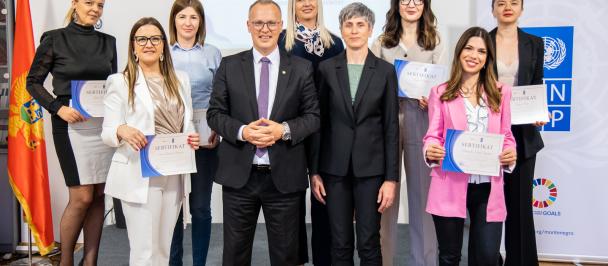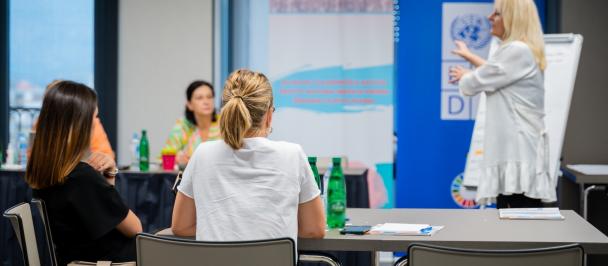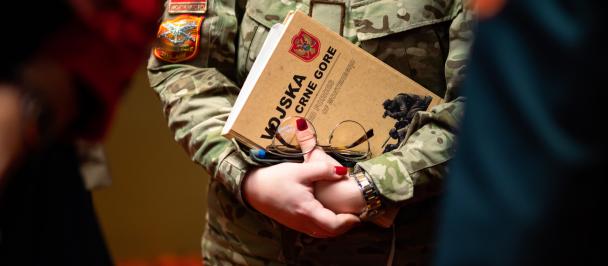Podgorica, December 8, 2021 – Most femicides can be prevented with coordinated, fast, preventive action. The murders of women are not isolated incidents that happen suddenly, but rather represent the ultimate act of repeated violence that is socially and culturally rooted, even accepted and tolerated, it was said at today's conference “One too many“, organized by the United Nations Development Program (UNDP).
Although gender equality is one of the basic constitutional principles, gender-based violence remains a reality for one in three women born in Montenegro, and femicide is its most shocking form.
The UNDP Resident Representative for Montenegro, Daniela Gašparikova, assessed that the COVID-19 pandemic and its impact continue to overshadow the crisis of violence against women and girls, including femicide, which further undermines the prioritization of these issues. She believes that this is worrying, because the systems for prevention and protection of women and girls from violence face new challenges of the pandemic, while economic difficulties and unemployment contribute to risk factors that encourage gender-based violence, including femicide.
According to Gašparikova, femicides are not isolated incidents that happened suddenly and unexpectedly. “Femicide is often the final act of repeated violence that is not properly recognized and prevented. Moreover, violence is often culturally and socially rooted, accepted as inevitable, even tolerated and justified over a long period of time. Most femicides can be prevented. Montenegro still does not have a functional and integrated system for collecting data on victims and perpetrators of violence against women, which is why UNDP and UN Women supported the establishment of the regional initiative Femicide Watch,“ said Gašparikova. She said that the eradication of gender-based violence, including femicide, is a matter of universal human rights and human dignity that concerns all of us and in which everyone should be involved through urgent, coordinated and unambiguous action.
Gašparikova appealed to Montenegrin institutions, the media and the entire society to dedicate next year to the fight against violence against women and girls.
Deputy Ombudsperson Nerma Dobardžić assessed that violence against women is deeply rooted in our society, and that due to the latest tragic events, it is being talked about more intensively in public. “Social reaction has defined clear demands – harsher punishments for perpetrators and better preventive response of institutions. The ombudsman has been pointing out for some time that the phenomenon of violence is still worryingly present in Montenegro,“ she said.
Dobardžić believes that the punishments for perpetrators so far have been mild, which has not sent a clear enough message of zero tolerance towards violence against women. “It is not enough just to change the law. We need efficient application of regulations, stronger coordination of bodies and services that act in these cases,“ said the Deputy Ombudsperson.
Dragana Maljević, a communicologist, says that recent cases of violence with the most severe consequences show that as a society we have not done enough to protect victims. “At the same time, it is an alarm for state institutions to change the current practice, which, as it turned out, was inadequate when protecting victims from violence. We need to talk about this on a daily basis and act at all levels. I raise my voice against violence and encourage victims and those who find out that violence exists to report it,“ Maljević said. Danijela Lasica, a journalist, agrees that a stronger reaction is needed when it comes to prevention of violence: “Had institutions and entire society done their job, we would not have anything to report on.“ According to her, journalists often use two slogans – that the state is in transition and that Montenegrin society is patriarchal. However, Lasica adds, it turns out that Montenegrin society is more patriarchal today than it was 20, 30 or 40 years ago.
Civic activist Dina Bajramspahić believes that we are very much cultivating toxic masculinity in Montenegro. “It's not all men. Toxic masculinity is a set of traits and behaviors that aim to degrade women and embody violence against women. A number of phenomena accompany it – misogyny, chauvinism, sexism, rigidly understood gender roles, unscrupulous individuality, and competitiveness that men cultivate. None of these behaviors are a direct cause of violence, but together they create a terrain in which violence is a natural reaction of men. Violence against women is not a personal problem, but a political one, which politics can and must solve“, she said.
Activist Nada Koprivica sees a problem in interpreting the law. “For us, the interpretations of the law are conflicting – suggesting that the murdered woman is responsible, because she choose to be with the murdered, she did not report him, she did she not report clearly that she would be killed? Responsibility is put on her. It is important to be proactive and if each of us does what existing conventions and laws oblige us to do, we will have a significantly safer space for women in the future“, she said.

 Locations
Locations